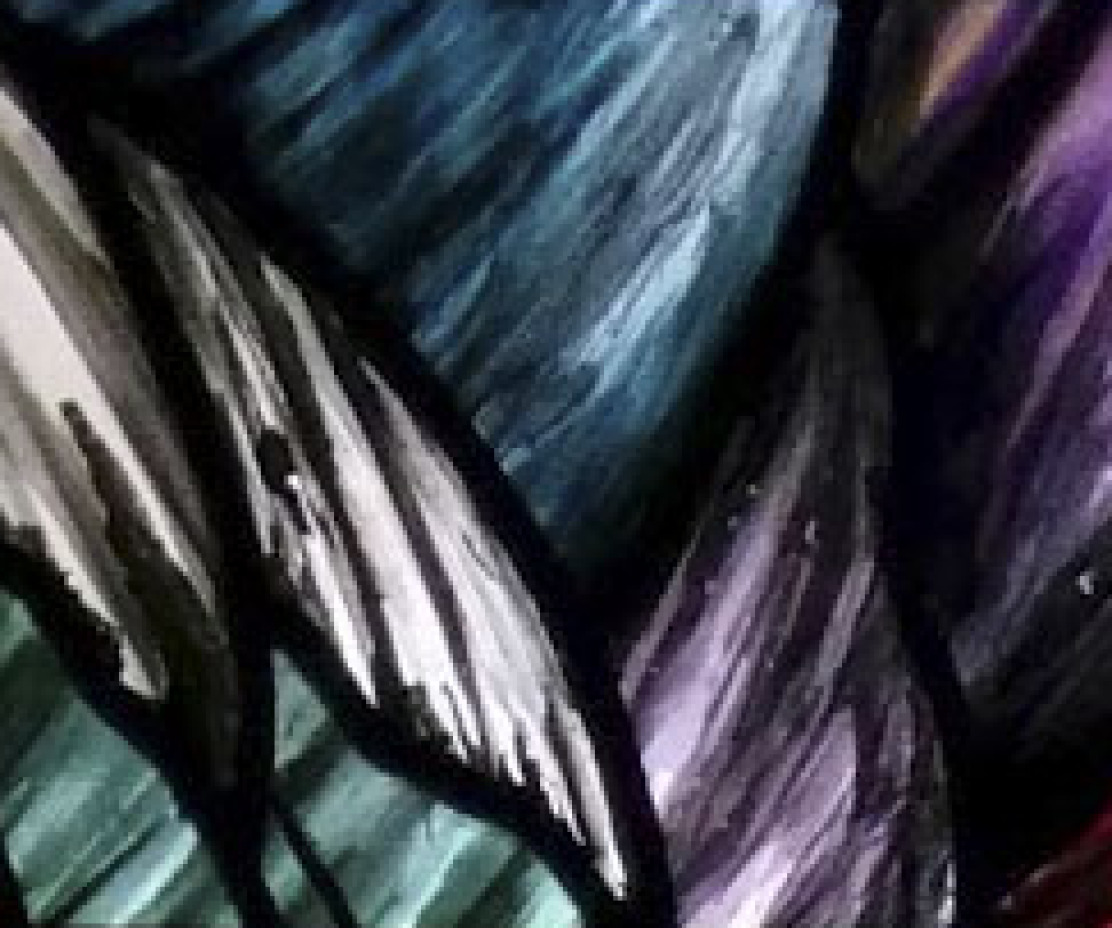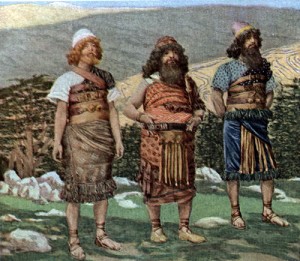These are the descendants of Noah’s sons, Shem, Ham, and Japheth; children were born to them after the flood.
The descendants of Japheth: Gomer, Magog, Madai, Javan, Tubal, Meshech, and Tiras. The descendants of Gomer: Ashkenaz, Riphath, and Togarmah. The descendants of Javan: Elishah, Tarshish, Kittim, and Rodanim. From these the coastland peoples spread. These are the descendants of Japheth in their lands, with their own language, by their families, in their nations.
The descendants of Ham: Cush, Egypt, Put, and Canaan. The descendants of Cush: Seba, Havilah, Sabtah, Raamah, and Sabteca. The descendants of Raamah: Sheba and Dedan. Cush became the father of Nimrod; he was the first on earth to become a mighty warrior. He was a mighty hunter before the Lord; therefore it is said, ‘Like Nimrod a mighty hunter before the Lord.’ The beginning of his kingdom was Babel, Erech, and Accad, all of them in the land of Shinar. From that land he went into Assyria, and built Nineveh, Rehoboth-ir, Calah, and Resen between Nineveh and Calah; that is the great city. Egypt became the father of Ludim, Anamim, Lehabim, Naphtuhim, Pathrusim, Casluhim, and Caphtorim, from which the Philistines come.
Canaan became the father of Sidon his firstborn, and Heth, and the Jebusites, the Amorites, the Girgashites, the Hivites, the Arkites, the Sinites, the Arvadites, the Zemarites, and the Hamathites. Afterwards the families of the Canaanites spread abroad. And the territory of the Canaanites extended from Sidon, in the direction of Gerar, as far as Gaza, and in the direction of Sodom, Gomorrah, Admah, and Zeboiim, as far as Lasha. These are the descendants of Ham, by their families, their languages, their lands, and their nations.
To Shem also, the father of all the children of Eber, the elder brother of Japheth, children were born. The descendants of Shem: Elam, Asshur, Arpachshad, Lud, and Aram. The descendants of Aram: Uz, Hul, Gether, and Mash. Arpachshad became the father of Shelah; and Shelah became the father of Eber. To Eber were born two sons: the name of one was Peleg, for in his days the earth was divided, and his brother’s name was Joktan. Joktan became the father of Almodad, Sheleph, Hazarmaveth, Jerah, Hadoram, Uzal, Diklah, Obal, Abimael, Sheba, Ophir, Havilah, and Jobab; all these were the descendants of Joktan. The territory in which they lived extended from Mesha in the direction of Sephar, the hill country of the east. These are the descendants of Shem, by their families, their languages, their lands, and their nations.
These are the families of Noah’s sons, according to their genealogies, in their nations; and from these the nations spread abroad on the earth after the flood.
The sons of Noah: Shem, Ham and Japeth, or were they Japeth, Ham and Canaan?
This chapter and the last are very good examples of the editor’s pen at work, cutting and slicing, adding where necessary to make the story move more smoothly. The idea behind all the editorial work is to make sure that the people of Israel do not exist in isolation from the rest of the world.
This is one of our examples of universalism found in the Old Testament. Examples like all of humanity stemming from one man and one woman. The redactor used this material to provide a background of world history, however rudimentary, for the people of Israel, which was to begin, or take its foundational root with Abraham. This becomes more apparent later when Israel’s vocational role is to become a light to lighten the Gentiles. (Isa 49:6) Although we are getting way ahead of ourselves here, after all we are still in Genesis and have not reach Isaiah.
This history of the world and therefore the people of the world is meant to explain how the coastal people came to be and how they are related to Israel. As well it explains who the hill people are and also who are all the tribes that inhabit the land of Canaan, which will eventually become the Promised Land.
This passage also tells another story though, a story of family united, but about to be divided. I refer you to verse 32. These are the families of Noah’s sons, according to their genealogies, in their nations; and from these the nations spread abroad on the earth after the flood.
All the people of the earth are of one family, united together after the flood, building nations and populating the land. A group of humans dedicated to each other and in community. Together they can accomplish anything, they have survived the flood and they have spread to all parts of the earth. But interesting enough, they have different languages. This of course will become of definite interest to us in the next chapter and also shows us how the redactor had insert this into the original material.
There are many ways we can read this passage in a postmodern world. But stepping back from the desire to explain away this passage or read it through the eyes of our time, I think this passage is simply supplying history for the people of Israel. It is simply redacted back into the foundational story so to support the idea that the people of God, Israel, come from a common and single ancestor.
Although, having said that, I would love to hear your opinion on chapter 10.

